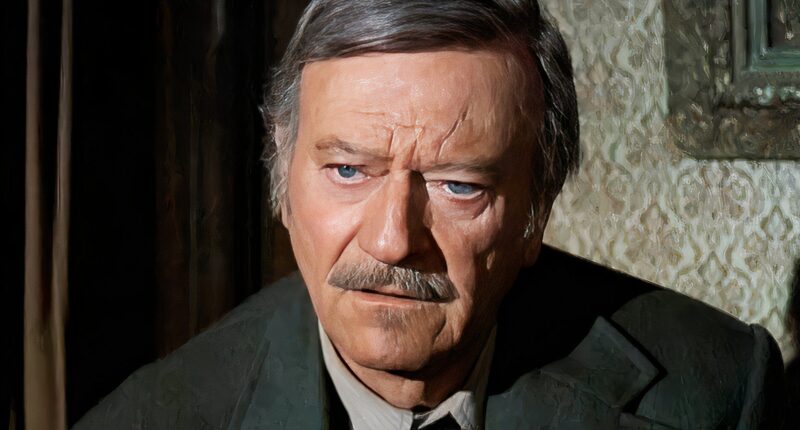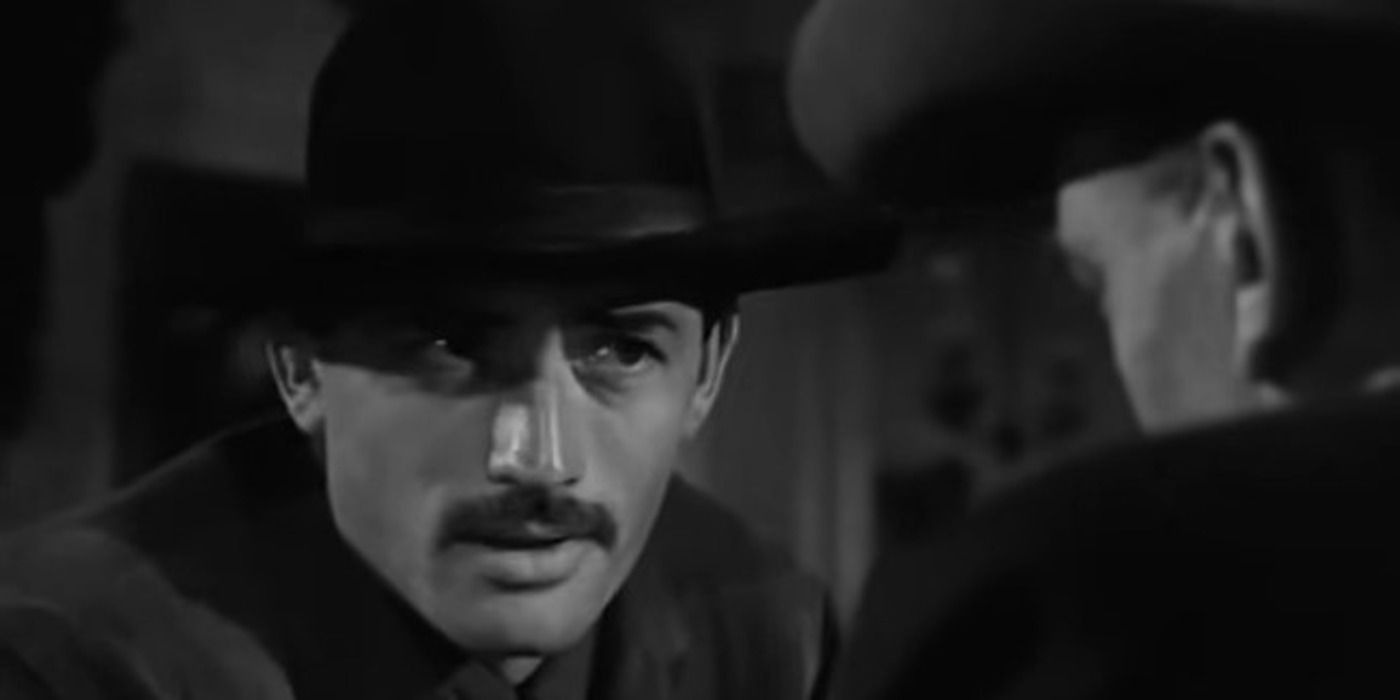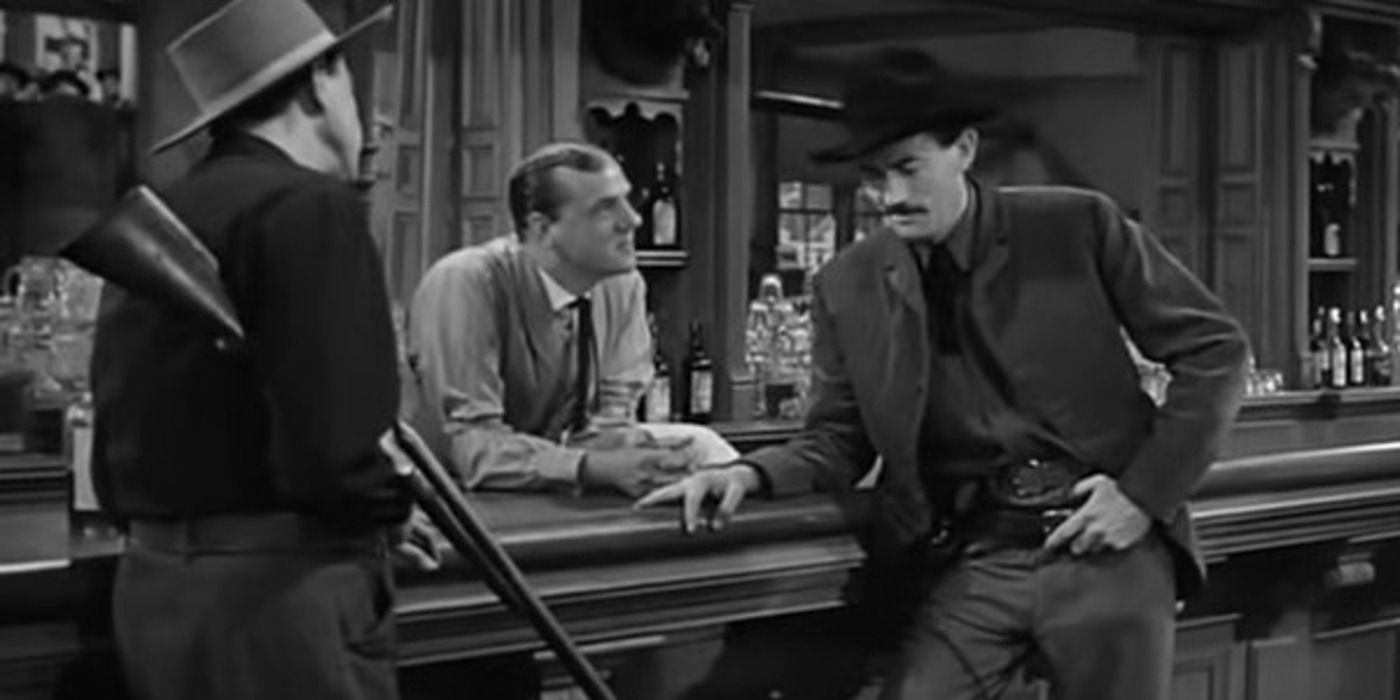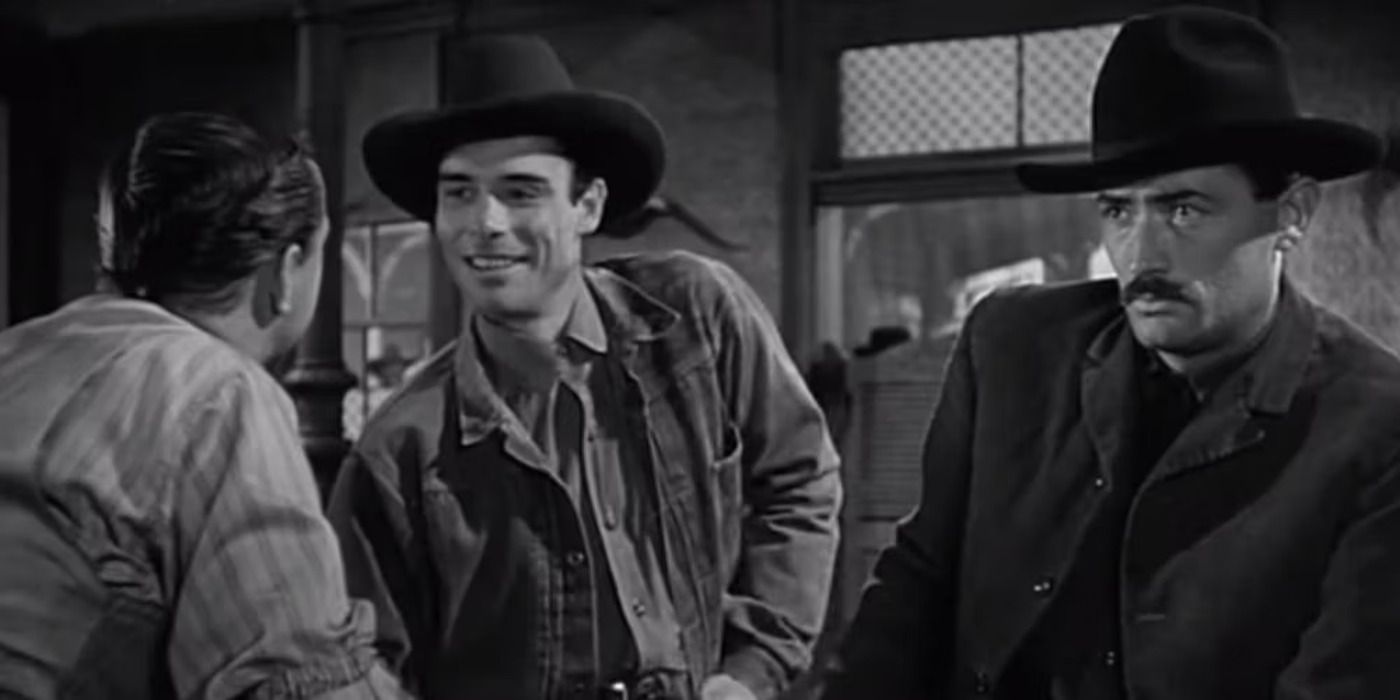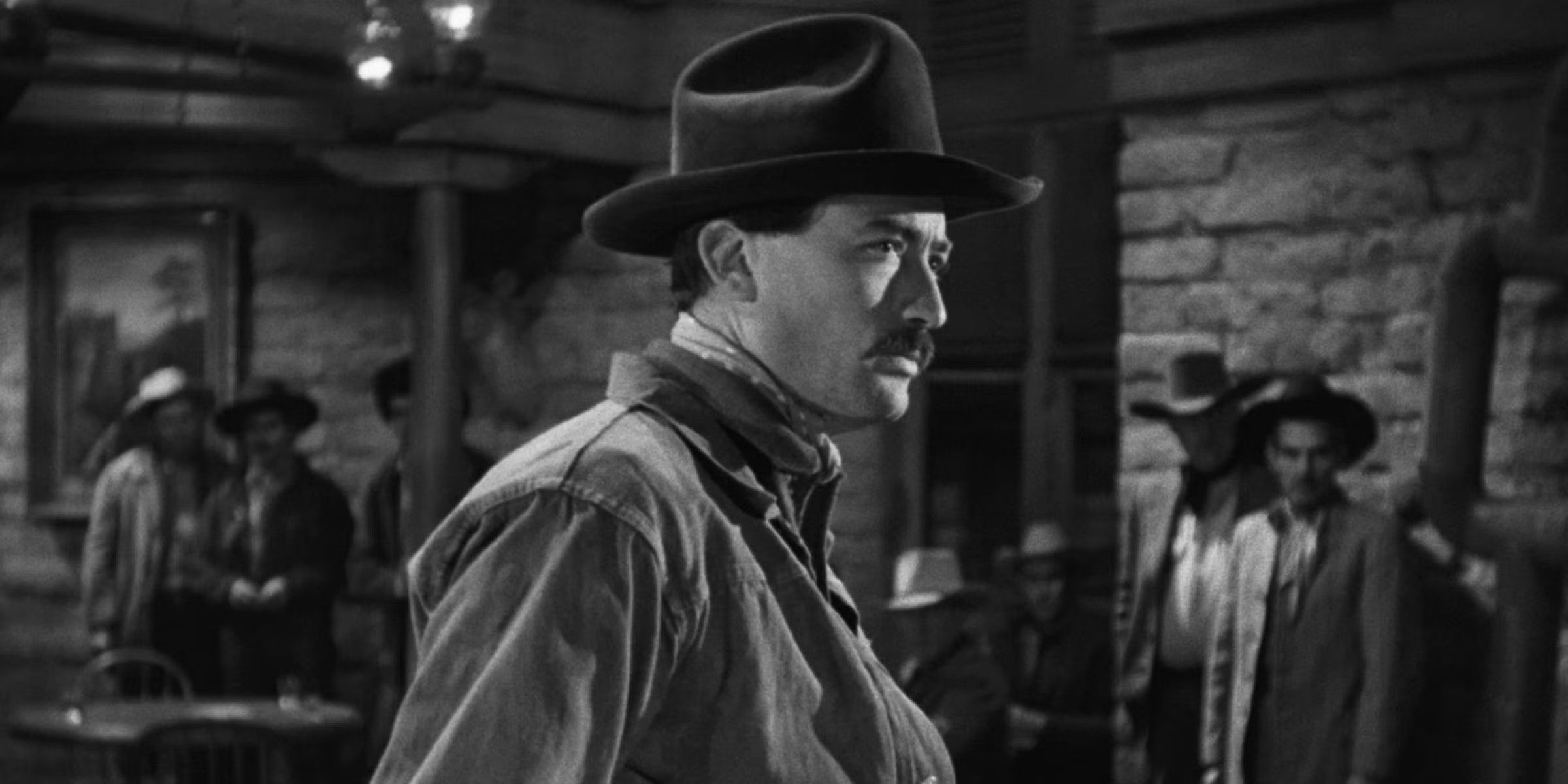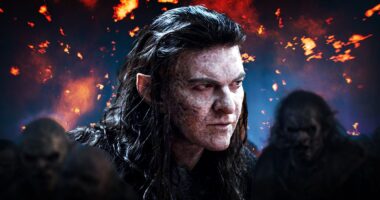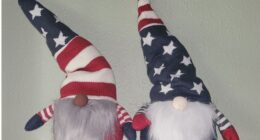When it comes to great endings in Western movies, few stand out as more impactful than what happened in The Shootist. But as memorable as its finale was, there’s another movie that not only has a similar ending, but one that’s actually handled even better. The Gunfighter may not be as iconic as The Shootist, but even so, it deserves its fair share of attention.
Released in 1950 and directed by Henry King, The Gunfighter was a black-and-white Western that starred Gregory Peck as Jimmy Ringo, a real-life outlaw associated with Western legends Wyatt Earp and Doc Holliday. The Gunfighter uses the real Jimmy Ringo’s notoriety as the foundation for a story about an aging outlaw’s efforts to escape the demons of his past and survive challenges to his status as the fastest gun around.
The Gunfighter, which was released 26 years before The Shootist, is oddly reminiscent of the 1976 Western that famously ended John Wayne’s movie career. Both are movies about aging gunslingers that other people want to surpass. Interestingly, these similarities extend to their endings, as both films see their protagonists suffer the same tragic fate, albeit under different circumstances.
The Gunfighter’s Jimmy Ringo Is A Legendary Gunslinger Who Dies After Being Shot In The Back
Both J.B. Books & Jimmy Ringo Are Aging Gunslingers Who Meet Unceremonious Ends
Much like John Wayne’s J.B. Books in The Shootist, Gregory Peck’s Jimmy Ringo is a famous gunslinger well past his prime. Yet, that doesn’t put an end to the appeal of killing him to other aspiring gunslingers in the region. Among those interested in taking him down are Marlowe and hotshot cowboy Bromley, who serve as the villains of the film.
Jimmy Ringo succeeds in dealing with Marlowe, but a threat remains in Bromley, even though it’s made clear that the young cowboy is not actually a match for Peck’s character. At the end of the movie, he sees a chance to take down the greatest gunslinger in the West and seizes it – Bromley shoots Jimmy Ringo in the back when he’s trying to ride away on his horse.
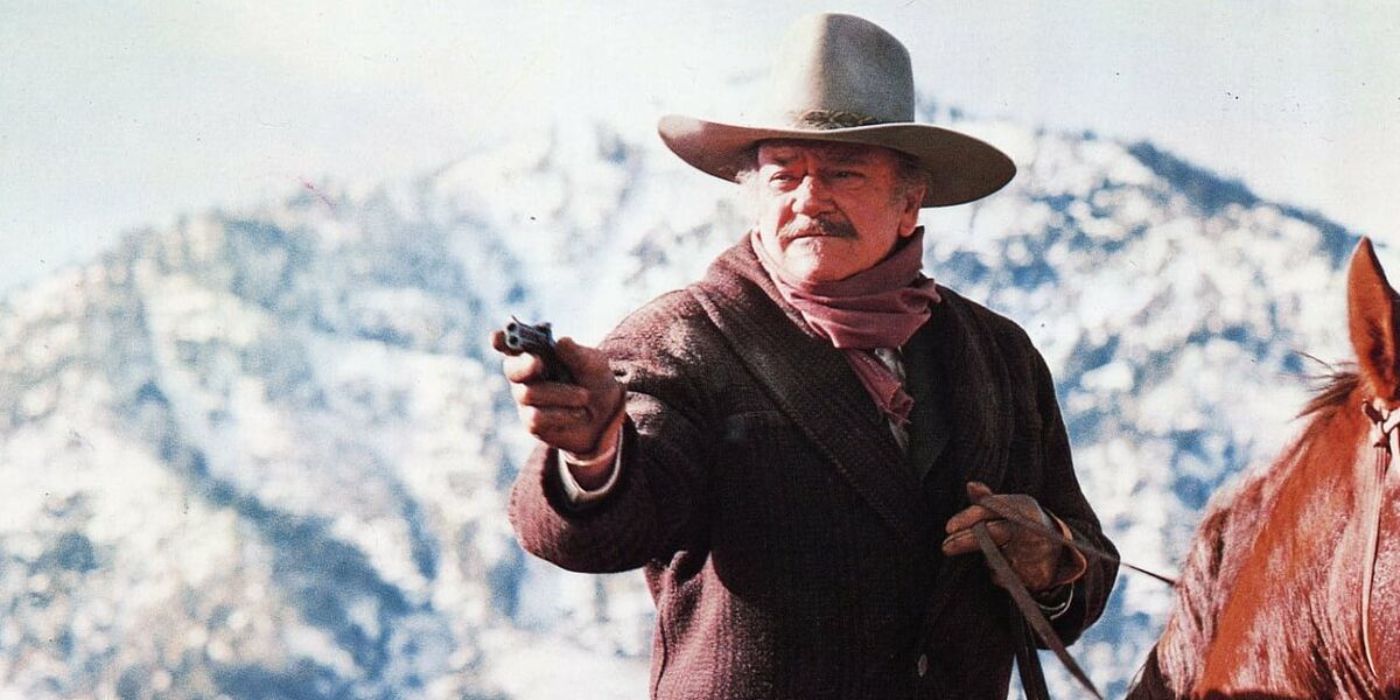
Related
John Wayne’s 1976 Western Was The Perfect “End Of An Era” Movie
The Shootist marked the final movie for screen legend John Wayne and worked as a perfect celebration of his legacy in the Western genre.
Bromley dies from his wounds after a tearful farewell with his wife and newfound son. Watching the scene instantly draws comparisons to how The Shootist killed off J.B. Books. After beating the other gunslingers who had come to kill him in the saloon, Books was gunned down from behind by the one enemy he hadn’t counted on having: the bartender.
The Gunslinger Has A Perfect Ending For The Main Character’s Killer
The Villain Is Forced To Live Like The Hero
In The Shootist, the bartender who unexpectedly shoots Books isn’t allowed any time to bask in the glory, as he’s immediately shot down by Ron Howard’s character. After all, the bartender is merely used as a tool to engineer the death of John Wayne’s character, more so than an integral part of the wider narrative.
But instead of punishing Bromley by making him pay the ultimate price, it offers an interesting twist by having a dying Ringo insist on Bromley not being killed
The Gunslinger, on the other hand, crafts a poignant ending that’s just as surprising as Jimmy Ringo’s demise. When a villain kills off a hero in a Western movie, the film rarely ends without justice being served onscreen. But instead of punishing Bromley by making him pay the ultimate price, it offers an interesting twist by having a dying Ringo insist on Bromley not being killed.
Ringo decides on the perfect fate for Bromley. He decides that he will allow people to believe that he fired the first shot, saving Bromley from being known as the coward who gunned down Ringo from behind. But that doesn’t mean Ringo is letting him off the hook; his real intention is to make Bromley understand the heavy cost of being the best.
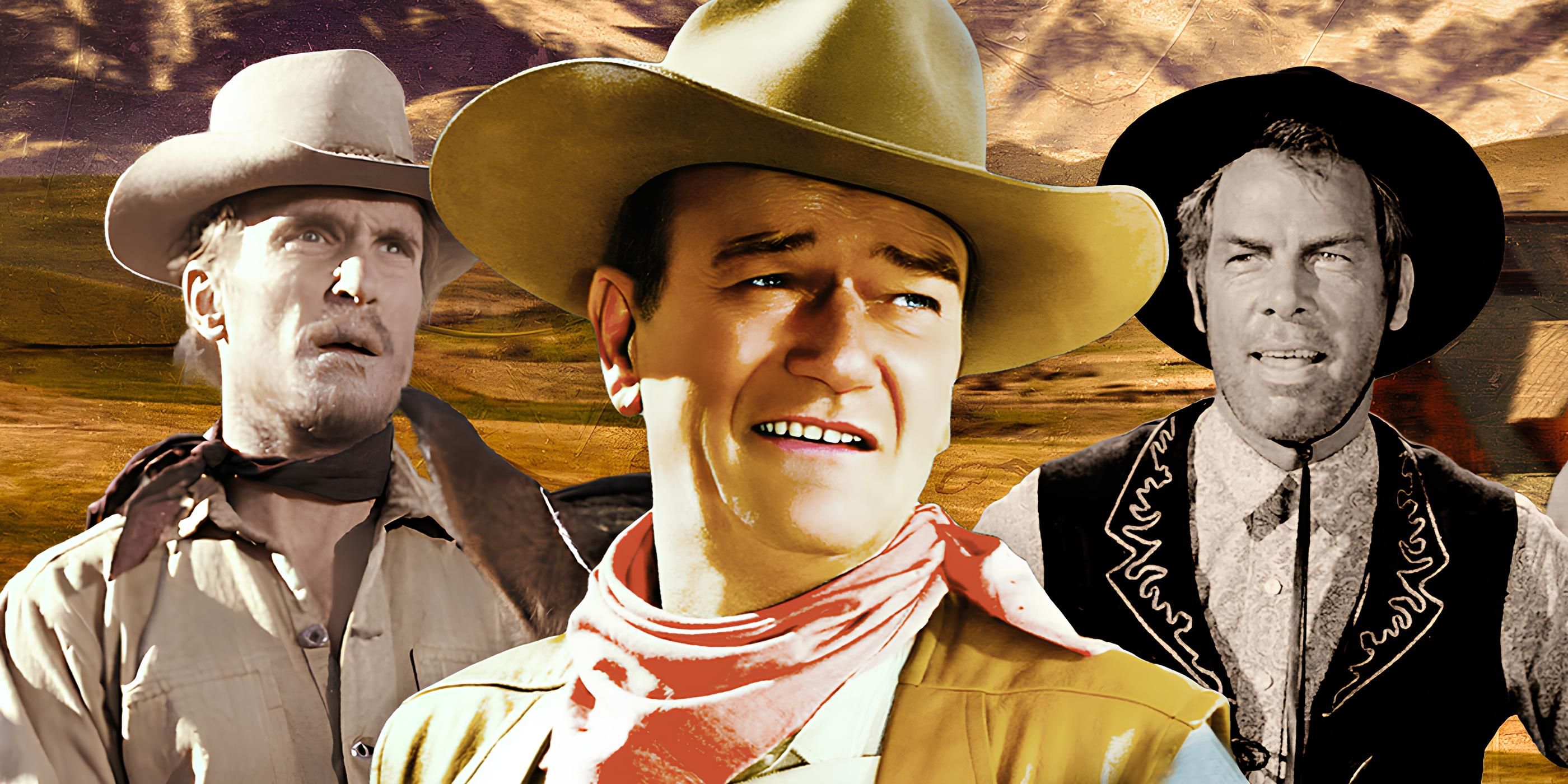
Related
10 Best Villains John Wayne Faced In Western Movies
With roles played by all-time great actors like Robert Duvall and Lee Marvin, John Wayne faced off against some ruthless Western movie villains.
Bromley ultimately gets what he wants in The Gunfighter, yet his murder of Ringo still comes across as a hollow victory. He’ll be known as the man who killed Ringo, but the glory likely won’t be worth the constant danger that comes with it. What’s more, his life will likely be fraught with even more peril, and is almost guaranteed to be cut short.
Ringo survived for years in spite of the target on his back, but it’s important to note that Bromley isn’t actually as good as his newly developed reputation will suggest to the rivals he’ll inevitably create. So while The Gunfighter ends with its despicable villain left alive, the audience can rest assured that his actions will be punished in the long run.
The Gunfighter’s Ending Is Even More Tragic Than The Shootist’s
The Gunfighter Is One Of Gregory Peck’s Best Movies Ever
There’s a deep sense of sadness to be felt from watching The Shootist, but much of it comes directly from the behind-the-scenes story. It being a symbolic ending to John Wayne’s movie career and the actor’s final Western has a lot to do with its emotional impact. As for The Gunfighter, it may not share the same level of meaning, yet it manages to instill an even greater feeling of tragedy.
What sets Jimmy Ringo apart from J.B. Books is that he’s not dying of a terminal illness. Books intentionally looked for a way to go out fighting, whereas Ringo approached the end of the movie with hopes for a peaceful and happy future. He had planned to go somewhere with his family where no one would know him, and the direction of the story gave the impression that was possible.
The Shootist was clearly going to end in tragedy one way or another, but Gregory Peck’s movie purposely gave false hope to both the audience and the main character
The Shootist was clearly going to end in tragedy one way or another, but Gregory Peck’s movie purposely gave false hope to both the audience and the main character. Instead of ending on a more positive message, The Gunfighter leans into something much darker, which is the notion that a person can’t escape from their past, no matter how hard they may try.
Even John Wayne Recognized How Good The Gunfighter Would Be
John Wayne Wanted To Play Jimmy Ringo
Another testament to the quality of The Gunfighter is John Wayne’s strong interest in the film. John Wayne wanted to star in The Gunfighter, but wasn’t impressed with the money he was offered for the part, which was actually written with him in mind. Having been told of the story, Wayne clearly saw potential in it, as evidenced by the fact that he held a longstanding grudge against the writer (William Bowers) over it.
What John Wayne actually thought of the finished product is unclear, but the fact that he held a longstanding grudge against the writer (William Bowers) over it decades after its release goes to show how much value he saw in the idea. Not being able to star in The Gunfighter may have been what attracted him to The Shootist, a movie that allowed him another shot at the film’s tragic story.
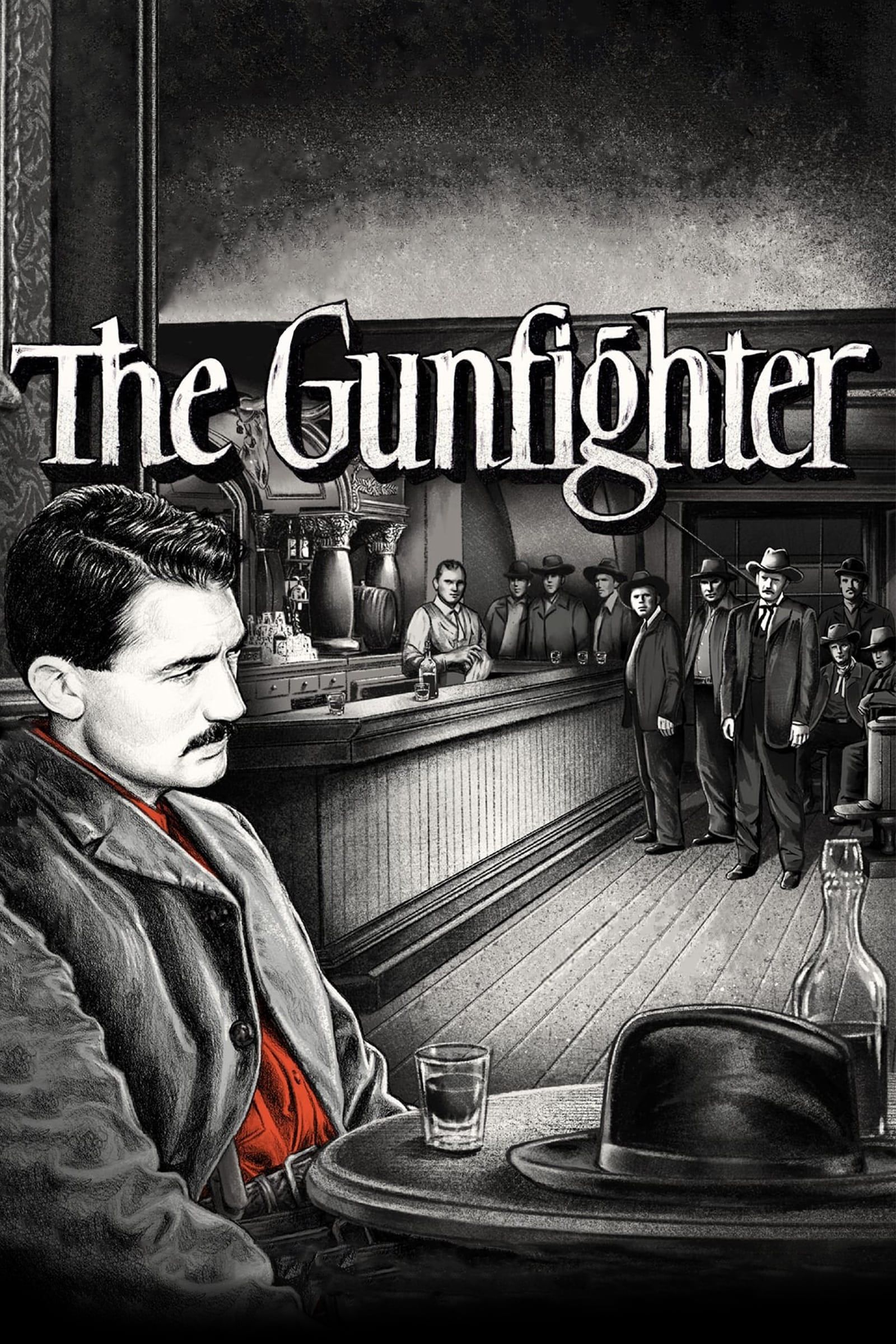
The Gunfighter
- Release Date
-
August 21, 1950
- Runtime
-
85 Minutes
- Director
-
Henry King
- Writers
-
William Bowers, William Sellers, André De Toth
